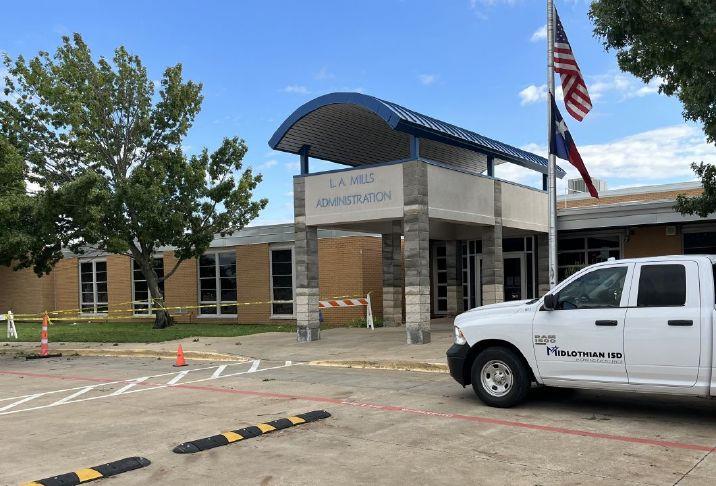The purchase of license plate readers at the request of the Midlothian Police Department drew lots of questions about civil liberties from some Midlothian City Council members Tuesday night.
Following more than an hour of discussion, councilmembers approved the purchase by a 4-2 vote, with the addendum that a subcommittee be formed to oversee the camera system program and ensure it is being used appropriately. Councilmembers Allen Moorman and Mike Rodgers voted against the purchase, and Mayor Pro Tem Clark Wickliffe was the only councilmember not present.
Rodgers stated that while he supported the goals of a license plate camera program to reduce crime, he could not support the city moving toward an increasing surveillance environment.
“I don’t know that I can bring myself to take the first step to decide for the citizens that’s the life I want to live in my city,” Rodgers said.
Moorman said his main concerns were over-enforcement in the case of an emergency, abuse by rogue investigators, and the eroding of Midlothian’s small-town atmosphere. Moorman suggested forming an oversight subcommittee to ensure accountability, which was added to the motion.
The purchase consists of Flock Safety license plate readers to be placed throughout the city at a cost not to exceed $209,100.
Police Chief Carl Smith told councilmembers that Flock license plate readers have been used by neighboring cities to catch criminals such as Mansfield, Cedar Hill and Waxahachie to great effect, calling the cameras “a force multiplier.” In Midlothian’s case, the cameras would not be deployed along major roadways, but instead in locations where crime is a concern, such as parks.
The cameras log license plates of passing vehicles and sends them to an encrypted database accessible only to law enforcement. If the license plate matches that of a vehicle that has been flagged because of a reason, such as a missing person, a stolen vehicle or an outstanding warrant, police and dispatchers would be notified.
All license plate data is deleted after 30 days, Smith said, unless a law enforcement agency identifies a plate for investigation.
Smith said the only item being stored in the database is the image of the license plate. Any other data associated with the plate would have to be called up by an investigator. Smith also said the system logs all investigators accessing the database, and the system is audited quarterly by the Texas Department of Public Safety.
As far as privacy concerns, Smith said these cameras will be used only in public areas where no privacy is expected.
The city already operates several conventional security cameras at city parks, and Smith said they have proved useful in making arrests for crimes committed.
Other items
- The council approved a long list of items dealing with equipping and furnishing the new City Hall and Library, which is scheduled to open in November. Councilmembers also tackled the eventual move-in at the new Public Safety facility.
- The sale of $6.1 million in tax notes for road rehabilitation, purchase and refurbishment of equipment, design of Fire Station No. 4, and the building of a reserve fire apparatus bay was approved.
- The approved consent agenda consisted of previous meeting minutes, an administrative services contract with the Midlothian Community Development Corporation, and emergency bottled water services. An authorization to join the Texas Municipal League risk pool for cyber liability and date breach coverage was pulled from the consent agenda and approved separately.
- Councilmembers authorized the MPD to apply for a pair of state grants, and also approved an interlocal agreement with Midlothian ISD to provide a commander, a sergeant and 16 officers to serve as school resource officers in the 2024-2025 school year.
- A Midlothian Economic Development economic performance agreement with Lawson 7th, LLC was approved in an amount not to exceed $30,234.
- Following an executive session, no public action was taken.



